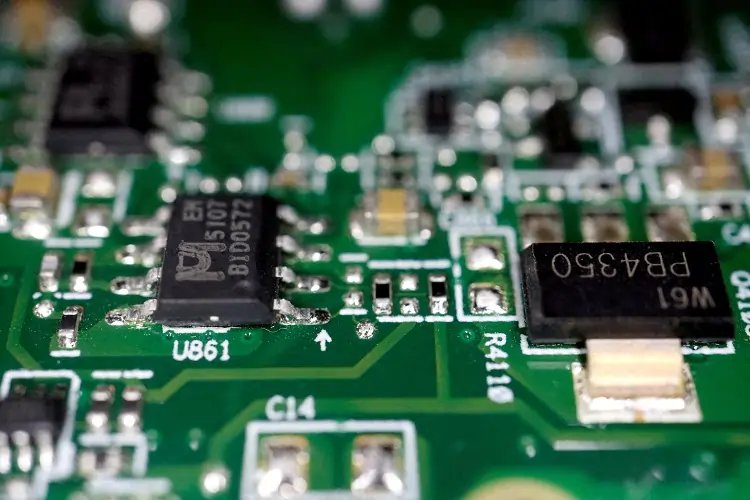EU Chips Act 2.0 should include legacy chips, says industry group chief


By Toby Sterling
AMSTERDAM (Reuters) – The European Commission should expand plans to strengthen its computer chip sector to include “foundational and legacy” semiconductors, where much of the region’s strengths lie, the head of industry group ESIA said on Friday.
The Commission is discussing a possible follow up to the European Chips Act which was rolled out in April 2023 as a 43 billion euro ($46.96 billion) subsidy plan to boost Europe’s share of the global chip market to 20% by 2030.
The Commission’s incoming tech policy chief Henna Virkkunen pledged in hearings in the European Parliament last week to focus on horizon technologies such as quantum computing in a follow up to the 2023 legislation, which is now under discussion.
Rene Schroeder, who took over as head of the European Semiconductor Industry Association last week, said Europe’s
chip industry supports Virkkunen’s view but also sees the need to strengthen parts of the existing chip ecosystem.
“We’re calling for the Commission to come with a Chips Act 2.0 … encompassing both legacy and foundational semiconductors,” Schroeder told Reuters in a phone interview.
European chipmakers such as ESIA members Infineon, NXP and STMicroelectronics have leading positions in existing generations of chipmaking technology and continue to make advances in microcontrollers, power semiconductors, and sensors. Europe’s automotive and industrial companies in turn rely on these chips.
Schroeder said ESIA is eager to work closely with the new Commission on a roadmap to ensure that investments in research are paired with business needs and can eventually scale up.
The new commission, which is focused on security, competitiveness and growth, is expected to use a wider range of policy tools to advance the chip industry. Shortages during the coronavirus pandemic and U.S.-China technological rivalry increased appreciation for its strategic significance.
The previous Commission in July launched a broad industry survey on “legacy” chips, seeking views about how they are used in supply chains and weighing the competitive threat posed by a large buildout in manufacturing capacity by Chinese firms.
Schroeder said his group favours a mix of incentives and partnerships with countries such as the United States, Japan and South Korea “rather than a defensive approach that relies on restrictive and protective measures.”
(Reporting by Toby Sterling; Editing by Susan Fenton)
The European Chips Act is a legislative initiative aimed at boosting Europe's semiconductor industry, providing subsidies and support to increase its global market share.
Legacy semiconductors refer to older generations of chips that are still widely used in various applications, playing a crucial role in existing technology infrastructure.
Foundational semiconductors are essential components that form the basis for various electronic devices, enabling their functionality and performance.
Explore more articles in the Technology category











